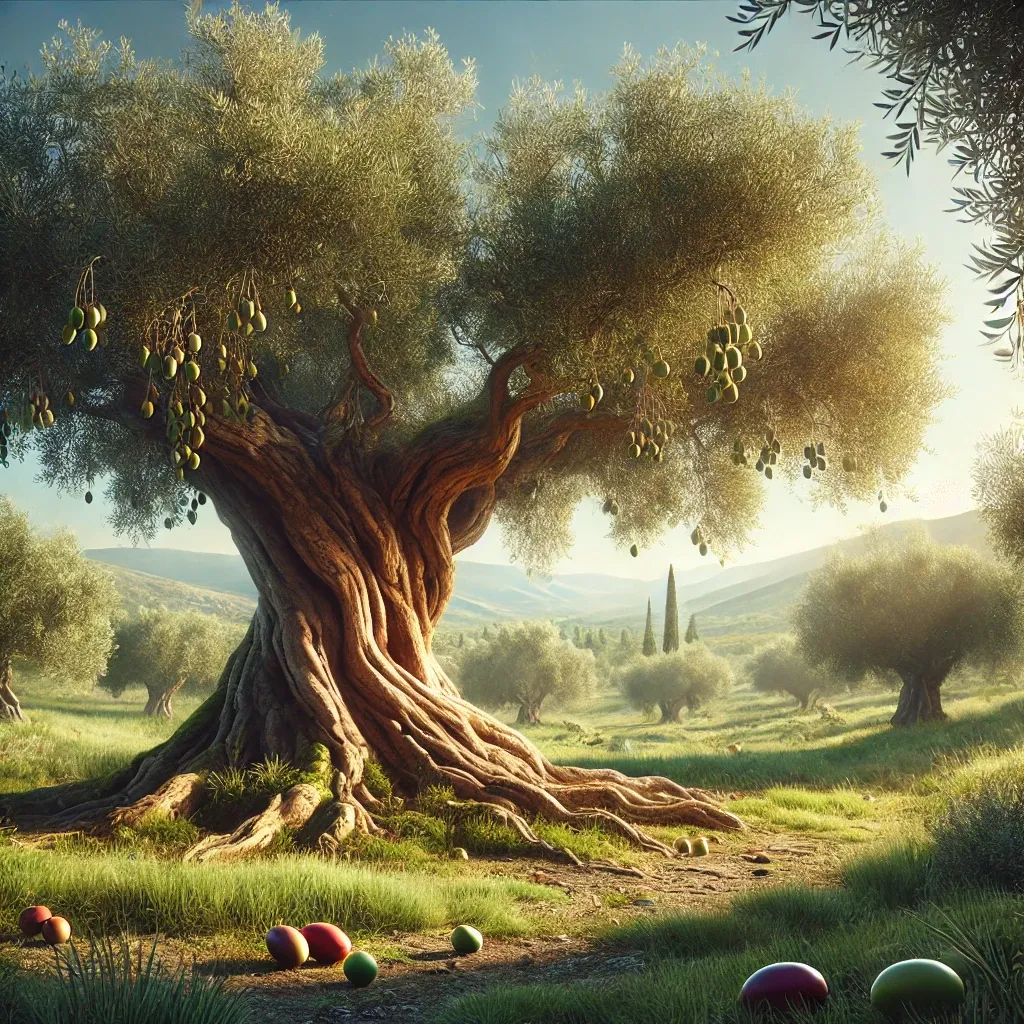The Thousand-Year Journey of the Olive Tree: The Tree of Immortality and the Mystical Path of Olive Oil

The olive tree, one of nature’s most precious gifts, has a history as ancient as humanity itself. Known as the “Tree of Immortality”, it has captivated civilizations for centuries—not just for its oil but for its cultural and mythological significance. But what makes the olive tree so special, and what are the lesser-known scientific and historical facts about olive oil? In this blog, we’ll explore the fascinating world of the olive tree and its liquid gold.
The Immortality of the Olive Tree: A Thousand-Year Life
Olive trees are not ordinary plants. Unlike most flora, they don’t age and die in the traditional sense; their roots remain alive and sprout new shoots, enabling them to endure for centuries. The oldest known olive tree resides on the island of Crete in Greece and is estimated to be approximately 3,000 years old—and it still bears fruit.
Legends and Mythology:
In Greek mythology, the olive tree was considered a gift to humanity from the goddess Athena. According to legend, Athena created the olive tree to bring peace, prosperity, and health to the world. This is why the olive branch remains a universal symbol of peace.
Resilience:
Olive trees thrive in harsh conditions, including drought, poor soil, and extreme climates. Their roots penetrate deep into the earth, making them masters of survival.
The Scientific Wonders of Olive Oil
Olive oil is not just a delicious addition to meals but also a scientifically proven natural elixir for health and wellness.
Polyphenols and Antioxidants:
Rich in phenolic compounds, olive oil protects the body against free radicals, preventing cell damage and slowing down the aging process. This is why it is often referred to as the "elixir of youth."
Brain Health:
Research shows that a compound in olive oil called oleocanthal can help prevent Alzheimer’s disease. It protects brain cells and supports healthy cognitive functions.
Natural Protector:
Olive oil is abundant in vitamin E, which acts as a shield against free radicals for your skin and serves as a natural moisturizer. It also reduces hair loss and nourishes the scalp, making it an effective beauty product.
The Historical Significance of Olive Oil: Liquid Gold
In ancient times, olive oil was not only a culinary staple but also a valuable commodity used for medicine, cosmetics, and even as currency.
Medicine and Beauty:
Hippocrates, the father of medicine, recommended olive oil for wound healing and pain relief. In ancient Egypt, it was a key ingredient in beauty routines and was believed to be one of Cleopatra’s secrets for youthful skin.
Economic Value:
During the Roman Empire, olive oil was as valuable as gold. It was one of the most traded goods along ancient trade routes and symbolized wealth and status.
A Little-Known Fact: Olive Oil Lamps
In ancient times, olive oil wasn’t just used for food; it was also a primary source of light. Olive oil lamps burned slowly and cleanly, making them the preferred lighting source. These lamps are still used in some traditional ceremonies today.
Discover Tradition and Quality with Munika
Inspired by the timeless story of the olive tree, Munika Olive Oil is produced using the most natural methods. Cold-pressed to retain its rich nutrients and unique flavors, Munika Olive Oil brings the heritage and taste of olives to your table.
